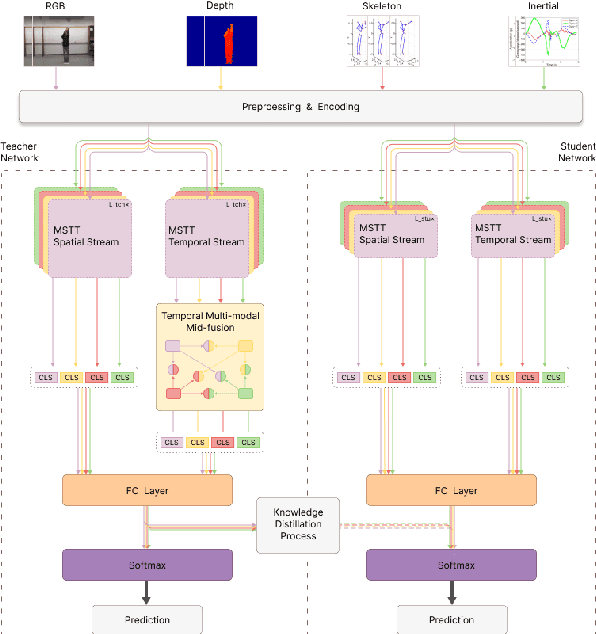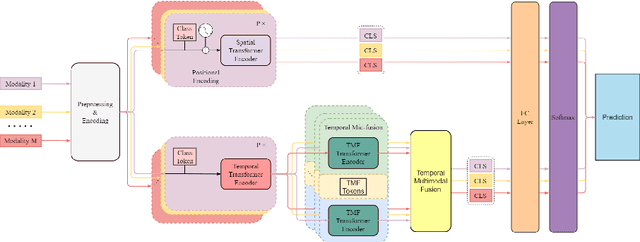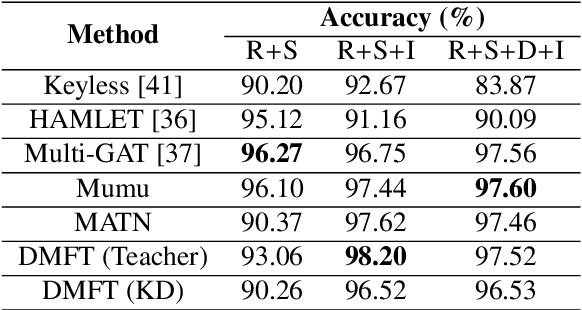Distilled Mid-Fusion Transformer Networks for Multi-Modal Human Activity Recognition
Paper and Code
May 05, 2023



Human Activity Recognition is an important task in many human-computer collaborative scenarios, whilst having various practical applications. Although uni-modal approaches have been extensively studied, they suffer from data quality and require modality-specific feature engineering, thus not being robust and effective enough for real-world deployment. By utilizing various sensors, Multi-modal Human Activity Recognition could utilize the complementary information to build models that can generalize well. While deep learning methods have shown promising results, their potential in extracting salient multi-modal spatial-temporal features and better fusing complementary information has not been fully explored. Also, reducing the complexity of the multi-modal approach for edge deployment is another problem yet to resolve. To resolve the issues, a knowledge distillation-based Multi-modal Mid-Fusion approach, DMFT, is proposed to conduct informative feature extraction and fusion to resolve the Multi-modal Human Activity Recognition task efficiently. DMFT first encodes the multi-modal input data into a unified representation. Then the DMFT teacher model applies an attentive multi-modal spatial-temporal transformer module that extracts the salient spatial-temporal features. A temporal mid-fusion module is also proposed to further fuse the temporal features. Then the knowledge distillation method is applied to transfer the learned representation from the teacher model to a simpler DMFT student model, which consists of a lite version of the multi-modal spatial-temporal transformer module, to produce the results. Evaluation of DMFT was conducted on two public multi-modal human activity recognition datasets with various state-of-the-art approaches. The experimental results demonstrate that the model achieves competitive performance in terms of effectiveness, scalability, and robustness.
 Add to Chrome
Add to Chrome Add to Firefox
Add to Firefox Add to Edge
Add to Edge